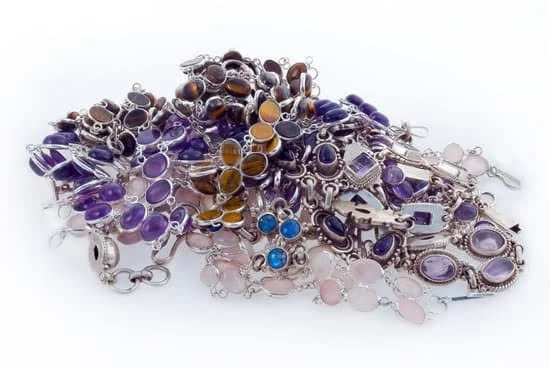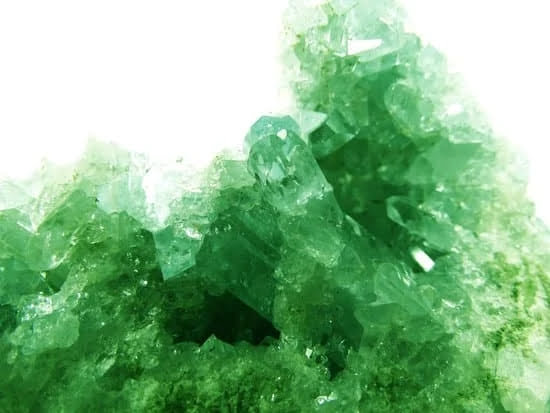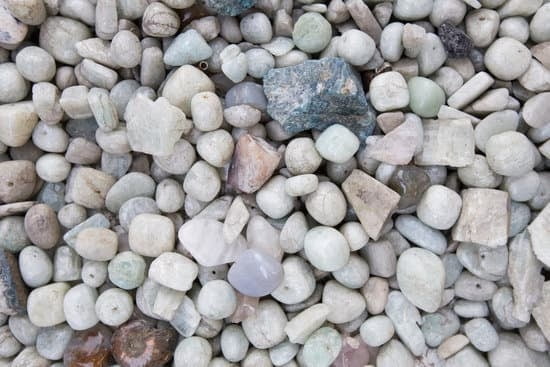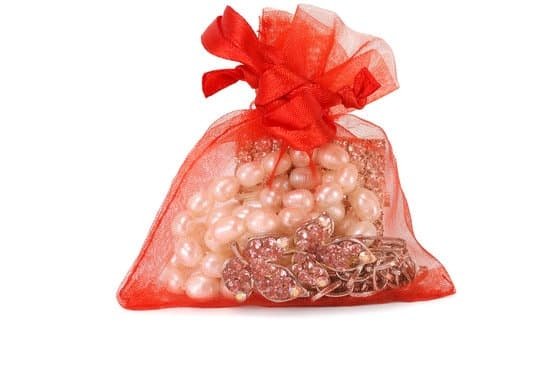Introduction
Yes! It is important to get your jewelry appraised for a number of reasons. First, an appraisal will determine the value of your jewelry at any given time. This is especially important if you may be considering selling or trading in your pieces, as it will let you know how much it is worth. The appraisal will also help verify the authenticity of the piece and inform you on the materials used in its creation. Additionally, with an appraisal in hand, you can make sure that you are properly covered in case it is ever lost or stolen. An appraisal serves as proof of ownership, which can help streamline the insurance claims process. Furthermore, having regular appraisals can track changes in value due to inflation or fluctuations in prices of certain materials used in the piece. By having a professional appraiser review your jewelry every few years, you can make sure that your pieces are insured for their correct value and protect them from unexpected loss.
Benefits and Reasons to Get Your Jewelry Appraised
Yes, you should definitely get your jewelry appraised. A professional jewelry appraisal is an important step to understand the true value and worth of a piece of jewelry you own. Not only does it provide information such as the current market value, but it can also give you a history and timeline on the piece. Jewelry appraisals are beneficial in several ways:
First, they can help determine whether something is real or if it has been blended with inferior materials, so that you know what exactly you’re dealing with. Second, getting your jewelry appraised allows you to protect yourself against fraud and to make sure that if anything were to happen to your piece of jewelry that any insurance coverage is up-to-date. Third, appraisals are helpful for tax reasons – they will establish proof of the item’s value should it ever need to be presented in court or used as a form of collateral in a loan agreement. Finally, understanding the current market value of your item(s) will help you in making decisions about either selling them or inheriting them. With all these benefits, there’s no good reason not to get professional appraisal for your jewelry items!
How to Prepare Before Going for a Jewelry Appraisal
Yes, it is a good idea to get your jewelry appraised. Appraisals are important for making sure that you have an accurate record of the value of your jewelry, should you ever need to insure or sell it in the future. Before beginning the appraisal process, make sure that you thoroughly clean and document your jewelrypiece – use a soft cloth and gentle cleansers to avoid damage. Photographs can also be beneficial in captuing small details or features oftentimes missed in person. Additionally, when choosing an appraiser, make sure they have an established reputation and experience with different types of jewelry. You should also ensure that they are registered as an independent appraisal agent with qualifications from a reputable organization. Once you’ve chosen an appraiser, discuss the types of information they need and be prepared to present all relevant documentation regarding the piece such as past certification or valuation documents along with any other information related to its original acquisition. Lastly, if possible avoid multiple appraisals as too many may impact accuracy and devalue certain elements that could otherwise increase its worth.
What Does a Jewelry Appraisal Include?
Yes, you should get your jewelry appraised. Knowing the true value of a piece of jewelry allows you to make an informed decision regarding its worth when making any kind of purchase, sale or trade. It can also be helpful if you need to file an insurance claim in the event your jewelry is lost, stolen or damaged.
A jewelry appraisal usually includes a detailed description of the item(s), including measurements, weight and materials used (such as precious metals and stones). The appraiser may also compare it to other similar pieces as well as take into account age, craftsmanship and overall condition in their assessment. An appraisal should also include photographs or drawings so that if needed, the item(s) can easily be identified in the future. A professional will assess the current market value of the item and provide both written details and a certificate regarding their findings. In some cases, they may use laboratory testing equipment to more accurately determine metal content or gemstone quality. If available, past receipts and any additional paperwork (such as grading reports for diamonds) should also be included in the appraisal process.
The Different Types of Jewelry Valuation
There are a few different types of jewelry valuation, each applicable to specific circumstances:
1. Retail Value: This is the sum of what you would pay if you bought the item new from a retailer.
2. Insurance or Replacement Value: This type of valuation defines the price at which it would cost to replace the item and is commonly used to prevent over- or under-insured jewelry items in cases of loss or damage.
3. Market Value: This determines how much an item would be worth in relation to other similar pieces. Typically, market values are lower than replacement values because of factors such as style and fashion trends, as well as inflation and prevailing conditions in the diamond market.
4. Resale Value: This type of appraisal evaluates an item’s value based on its ability to command a buying price from a willing, knowledgeable buyer on the open market, rather than simply replacing it with an identical piece from a retailer.
5. Liquidation Value: This takes into account what it would cost for one person to buy out another’s interest when liquidating an estate or business inventory for cash. Liquidation value typically reflects more current economic conditions than resale value and may change quickly over time due to volatility in markets associated with jewelry such as precious metals or diamonds.
What Questions Should You Ask Before Choosing a Jeweller?
When choosing a jeweller, it is important to ask questions to ensure that you are dealing with a trustworthy and knowledgeable professional. Questions to consider include: Are they certified or qualified in the jewellery appraisal trade? What fees do they charge for their services and what will you receive for them? Are they experienced in appraising the type of jewellery you own? Do they also have expertise in antiques, coins, watches, or other types of valuable items that may factor into your assessment? Also, do not be afraid to request references from previous clients who have had successful experiences. Ultimately, make sure that you feel comfortable with the jeweller’s background and experience so that you can confidently trust their opinion when it comes time to assess the value of your jewelry.
The Considerations Before Choosing a Jeweller
If you are deciding whether or not to get your jewelry appraised, there are a few factors to consider before you make your final decision.
First, determine the type of appraisal you need. Jewelry appraisals typically fall into two categories – insurance evaluations or resale/market value assessment. Insurance evaluations establish the monetary value of your jewellery in case it is lost, damaged, or stolen and require detailed inventory lists and photographs. Resale/market value assessments focus on determining what the jewelry could be expected to sell for in current markets. Secondly, find an accredited jeweler with experience in appraising the type of jewelry you have. Make sure they belong to an appraisal association like NAJA (the National Association of Jewelers Appraisers) that is committed to upholding strict appraisal standards across its members. Finally, find out about fees for the various types of appraisals before committing to one. Fees can vary significantly from one jeweler to another, so it is important to shop around and compare prices before making a final decision.
What to Be Aware Of in Jewelry Appraisal Pricing
Jewelry appraisals are an important step in determining a fair market value for a piece of jewelry. Before getting jewelry appraised, there are several things to keep in mind. First, the source of the appraisal should be considered. It is wise to hire an independent, certified appraiser rather than going to the same jeweler that sold you the piece. This helps ensure that there is no bias in the determination of value and ensures an accurate appraisal.
Another factor to consider is the type of appraisal being requested. If you plan to insure your jewelry, then a Full Documentation Appraisal with results reported on USPAP (Uniform Standards of Professional Appraisal Practice) compliant forms may be beneficial in this instance. However, if you are just looking for insurance replacement value or an estate valuation, a simpler Jewelry Report format may suffice. The cost for each type of appraisal can vary greatly depending on intricacy and turnaround time required.
In addition, it’s helpful to do research before visiting a jewelry appraiser so that both parties are familiar with current pricing trends in the market before any negotiations begin. Knowing proper industry standards and pricing can protect against overpaying or underselling when getting jewelry appraised. All costs should be discussed openly with your appraiser prior to beginning services, including any fees associated with cleaning or repair work if needed. When done correctly an appraisal can provide peace-of-mind and assurance that one’s investment has been properly assessed and documented with accuracy.
Common Mistakes People Make When Appraising Jewelry
An appraisal is an important part of the jewelry buying and selling process. However, it can be difficult for people to appraise their own jewelry, as making mistakes can result in an inaccurate appraisal due to factors such as inexperience and lack of knowledge. Some common mistakes people make when appraising jewelry include:
1. Not knowing the 4 C’s: The 4 C’s – cut, clarity, colour, and carat weight – are essential criteria for assessing diamonds and other precious gems. Omitting one or all of these factors can lead to an overly optimistic appraisal that doesn’t reflect the true market value of the piece.
2. Not considering laboratory verification: Most professional jewelry appraisers will have a gemstone laboratory verify any identified stones within the set piece, but it is often overlooked when self-appraising jewellery. Laboratory verification is key in helping to determine an accurate assessment of the attributed qualities and features of a stone which can make all the difference in getting a real estimate for your item’s market value.
3. Neglecting resale value: When self-appraising a piece, many commonly overlook taking into consideration its future resale value such as whether or not it depreciates over time or if any gems/diamonds used were synthetically treated in any way that could decrease its worth down the line? Knowing this ahead of time can ensure you receive proper reimbursement come time to sell your prized piece years later.
For these reasons, it is advisable to seek professional help when appraising pieces. A qualified gemologist or jeweler will be able to provide an accurate appraisal of your item so you know exactly what kind of price tag it carries both now and later on down the line!
How to Interpret Your Appraisal Results
If you decide to get your jewelry appraised, it is important that you understand how to interpret the results of the appraisal. An appraisal from a reputable jewelry appraiser typically contains the four C’s of diamond quality (cut, color, clarity and carat weight), as well as a description of any precious stones or gems, their origins, and values. It may also include information regarding the condition, quality scale rankings and other details about the jewelry item(s). Knowing how to read an appraisal report will help you make informed decisions about what items are worth purchasing or selling for.
The four C’s outlined in the appraisal will give you a good indication of the market value for each item. For example, if an item is given a higher grade for its cut or carat weight than similar pieces on the market, this could help raise its value. If something has a lower grade compared to other items on the market, then it might be wise not to purchase it. Similarly, if your appraiser assigns precious stones or gems with widely accepted rarity senses and treatments that generally increase their market value, then those values should be taken into account when looking at purchasing or selling prices.
In addition to assessing the four C’s and precious stone/gem specifications in an appraisal report, there are several other elements which can affect pricing. These include information on craftsmanship, such as metal types used in construction; aesthetic features and style; overall condition of the piece; age; origin; hallmarks of authenticity; replacement and/or resale value; as well as insurance costs associated with certain items (e.g., designer-made pieces which require special coverage). All these factors should be considered before making any final decision about buying or selling your jewelry based on its appraisal results.
Conclusion
The answer is yes. Jewelry appraisals are important if you want to make sure that your fine jewels are accurately valued and understood. Not only can it provide accurate values, but it can also document any changes in condition over time, as well as protect you from any unintended mistakes in transaction costs or insurance pricing. In addition, an appraisal may be required for estate planning purposes, such as when transferring ownership of the jewelry to another family member. Before committing to an appraisal service, research the various available options and select a qualified professional with experience relevant to the type of jewelry piece you are appraising. While there may be a cost associated with getting jewelry appraised, the potential benefits far outweigh the investment.

Welcome to my jewelry blog! My name is Sarah and I am the owner of this blog.
I love making jewelry and sharing my creations with others.
So whether you’re someone who loves wearing jewelry yourself or simply enjoys learning about it, be sure to check out my blog for insightful posts on everything related to this exciting topic!





